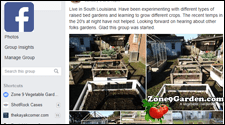Zone9Garden.com is not a medical website nor is the advice bellow a substitute for a doctors advice. Please consult a physician with any questions about Heat Exhaustion and Heat Stroke
Signs of heat exhaustion and heat stroke
Please be extra careful when working out in the heat and humidity of Zone 9. Not taking precautions such as keeping your body hydrated or wearing loose cotton clothing and a hat can be very, very dangerous.
The most common heat illness is heat exhaustion. This often comes on suddenly, and is caused by dehydration, leading to decreased blood volume. Here are some symptoms of heat exhaustion:
- Headache
- Nausea
- Dizziness or feeling faint
- Profuse sweating
- Clammy and/or cool skin
- Rapid or weak pulse
- Body temperature at or lower than normal
- Low-grade fever
- Ashen or pale skin tone
Here are some ways to deal with heat exhaustion, according to webMD. If these measures don’t help within 15 minutes, call 911.
- Get out of the heat and rest in a cool room or a cool, shady place.
- Drink plenty of fluids (but not caffeine or alcohol).
- Remove any tight or unnecessary clothing.
- Take a cool shower, bath or sponge bath.
- Use fans or ice packs to speed cooling.
Heat stroke happens when your body can’t cool itself down. Body temperatures may rise to an alarming 160 degrees F within 10 or 15 minutes. Here are some potential warning signs of heat stroke:
- Body temperature above 103 degrees F
- Irritability Confusion
- Skin that is hot, dry and red
- No sweating
- Heartbeat that is rapid and strong
- Breathing that is rapid and shallow
- Throbbing headache
- Dizziness
- Nausea
- Unconsciousness
How to deal with heat stroke, as recommended by webMD:
- Heat stroke can be fatal, so call 911 right away.
- Move into the air-conditioning or at least a cool, shady area.
- Remove any unnecessary clothing.
- You need to cool the body down to about 101 degrees F.
- There are several ways to do this:
- Wet the patient’s skin and fan air over the body.
- Apply ice packs to armpits, groin, neck and back.
- Put the patient in a cool shower or tub, or an ice bath.
So by all means, enjoy your gardening work, but be smart and avoid heat exhaustion and heat stroke. Your life may depend on it.


